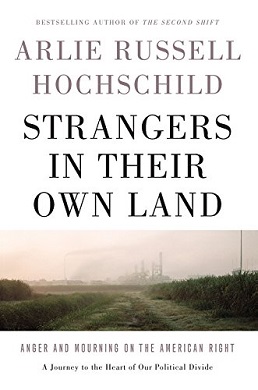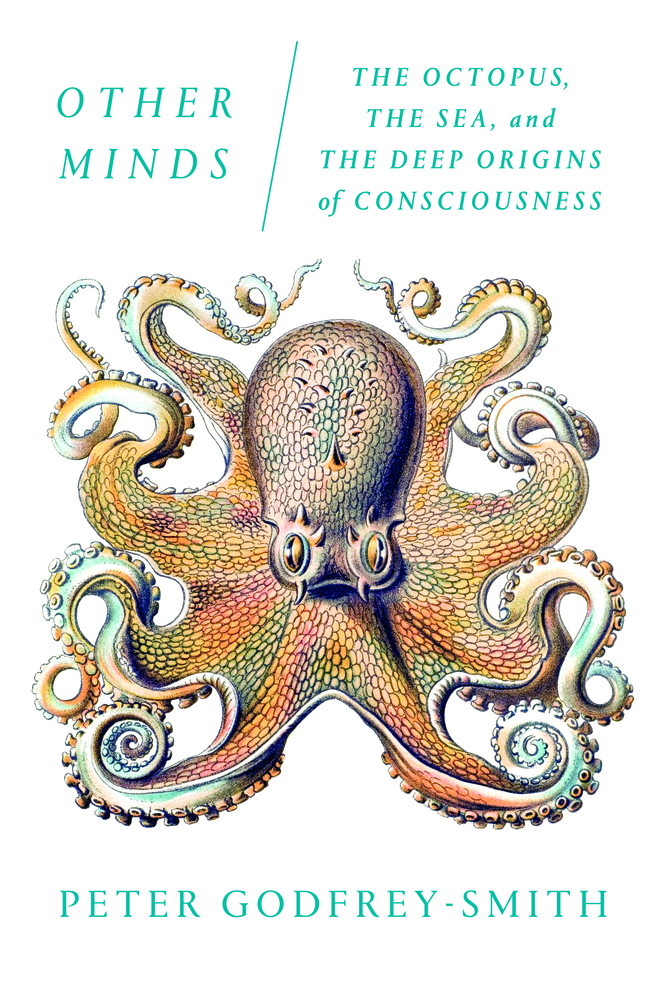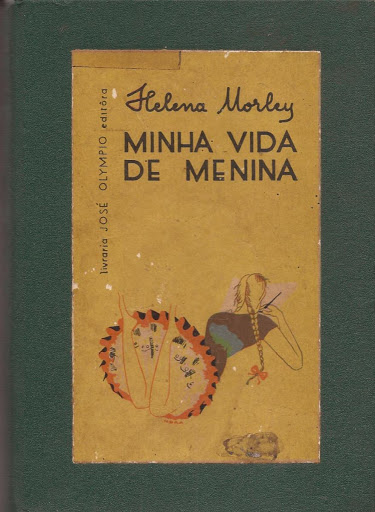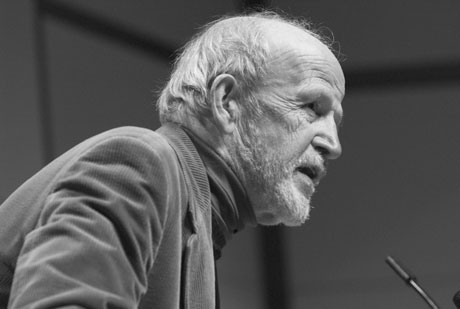
Recall This Book
Recall This Book Team
Recall This Book is a podcast exploring important books on a pressing topic. Each episode focuses on a contemporary problem or event and zeroes in on a book or books that shed light on it. We look backwards to see into the future: we can understand things about the future by choosing texts that shed a sideways light on our present situation, and attempt to shake up the terms of present debate by showing how a topic was approached in earlier times when a different version of this question had come up before. We aim to have lively barstool discussions--a warm but involved and potentially argumentative hashing out of the best way to think through difficult present-day issues. We bring on writers to talk about their own books, or scholars to talk about the books that are helping them navigate best the world in which we live.
- 102 Sassan Tabatabai: poetry, observation, and form (EF, JP)

“For me, there is something so solid and comforting in stone” says Sassan Tabatabai in our conversation, and in his poem “Firestones” the words roll, weigh and satisfyingly click together.
“Firestones”
I was collecting rocks on the Cardiff coast,
a testimony to centuries of silt
left on the shore, of sediment pressed into stone:
sandstone, shale, tufa, travertine, jasper, flint.
There was the stone that knew the sadness of the sea,
that saved its secrets. It was pock-marked with holes
and lay half-buried in sand eager to save
the ocean’s spray, like tears, in its miniature pools.
There was the stone that always rolled in place.
It had rolled round and round with each wave,
desperately trying to control the tide.
The was the stone that shoe rings upon riungs
placed by the seas over the years,
that kept time for the Pacific.
There were stones that breathed sulfur,
that sparked when they touched.
Unremarkable in luster or shine, they
were the lovers of the ocean, firestones
whose sparks were not dampened by salty waves
(but they only made sense in pairs).
And there was this one, more white,
more brilliant, more polished than any stone.
But it was once upon a shell;
it needed centuries to become stone.
It was a counterfeit firestone:
it did not breathe sulfur, it could not make sparks.
I traced my steps back along the Cardiff coast
and the stones I returned to the sands.
Te ocean’s secrets would be well-kept by the stones:
its tears would be stored in pools,
its tides kept in check,
its years measured in rungs.
But love itself I could not leave on the beach.
I kept the firestones.

In our conversation, we touched on scholar’s stones came up, and Gerard Manley Hopkins‘s journals full of words/names.
From here we moved to other poems and poems and Sassan’s work in different languages (Persian, English), poetic traditions (haiku, Sufi poetry, ghazal) and activities (writing, translation, teaching). His dissertation on Persian poet Rudaki is mentioned. His “messy” practice across these many boundaries expresses a kind of playful profusion, ultimately rooted in sound, word, and the music of the lines.
“Qazal”
As a boy, I waited for the smile to appear in you.
Listened for echoes of the sigh I could hear in you.
You are the mirror where I have sought the beloved:
Her hyacinth curls, a nod, a wink. a tear, in you.
In the marketplace you can learn your future for a price.
They are merchants of fate; I see the seer in you.
What had been buried under the scripture’s weight,
Its truth, without words or incense, becomes clear in you.
They who bind you on the altar of sacrifice
Hide behind masks; don’t let them smell the fear in you.
As I approach the house lit by dawn’s blue light,
Step by step, I lose myself, I disappear in you.
We closed out our conversation with a reading of Sassan’s translation of David Ferry’s “Resemblance” (also featured in episode 55), with the Persian and English stanzas alternating.
Sassan’s book Ferry to Malta will be out in April, and you can hear him read and discuss his work April 27th at Brookline Booksmith.
6 April 2023, 1:26 pm - 32 minutes 49 seconds64 Brahmin Left 4: Adaner and John wrap up with Elizabeth
Our Summer series on the Brahmin Left, winding down as Fall approaches, was inspired by our bracing but terrifying interview with Thomas Piketty. It starts from the assumption that a major realignment (or, rather, a “dealignment”) from the class-based politics of the mid-20th century is underway all over Europe and North America–and perhaps worldwide. What caused that? Piketty’s explanation centers on the rise of the Brahmin Left. He maintains that Left parties have abandoned the working-class for an increasingly highly educated voter-base (as if on cue, Nate Cohn recently supplied this analysis).
We spoke with Matt Karp, Jan-Werner Mueller and Arlie Hochschild and learned far more than we bargained for. Karp is among those who point to political changes produced by the waning power of labor in our post-industrial era; Mueller points to populist revival and ethnonationalism resurgent; Hochschild notes the breakdown in the narratives that succeeded in tying working-class white voters to Left parties in the 20th century. Other scholars (we spoke with Quinn Slobodian in 2019 for example) see in the Right’s recent successes the latest twist in a neoliberalism controlled by corporate elites.
Now, Adaner, Elizabeth and John come together for a “wrap” conversation: what unites our three guests, and what divides them? Elizabeth ponders the series as a whole, wondering: what exactly do we mean by “the left” anyway, let alone the Brahmin Left?
Listen and Read:
RTB 64 Roundup Brahmin Left Transcript finalDownloadUpcoming episodes: Next week marks the debut of a new feature. From now on, each month we will publish a short essay on the month’s big theme. So keep your eyes peeled for a Brahmin Left piece, hitting your browser three days into fall. And then…… October is Octopus Month (put away your chopsticks, please….). For starters that a terrific conversation with Peter Godfrey-Smith, author of the best book we know on the alterity of octopus consciousness: Other Minds. More cephalopod-themed material will follow throughout the month.

Finally, all listeners and readers who are interested in the gentle art of podcasting are cordially invited to the inaugural Humanities Podcasting Symposium, held over Zoom, October 15-16. Latif Nasser of Radiolab will headline two days of workshops, seminars and discussions among scholars students and amateurs who have fallen in love with the pedagogical and intellectual possibilities the medium affords. Elizabeth and John will both be presenting. Join us! RSVP here
16 September 2021, 5:28 pm - 33 minutes 26 seconds63 Brahmin Left 3: Arlie Hochschild (AU, JP)
Our Brahmin Left investigation was inspired by Adaner and John’s eye-opening interview with Thomas Piketty. Piketty maintains that Left parties have abandoned the working-class for an increasingly highly educated voter-base. This has turned (or perhaps only threatens to turn) Left parties all over the developed world from champions of egalitarianism into defenders of the privileges and interests of the educated.
In this series we set out to ask how various scholars make sense of this ongoing realignment (or perhaps “dealignment”) from the class-based politics of the mid-20th century. We might call today’s episode a tale of the Brahmin Left and the Tea Party Right—since we are interested not just in the movement of educated upper middle class people towards traditional left parties like the Democrats, but also in the movement of working class and less educated citizens towards the Right and the Republican party. We could imagine no better companion for that aspect of the series than renowned sociologist Arlie Hochschild, distinguished emerita professor of Sociology at UC Berkeley. We love many of her books (see partial list below) but it is her 2016 account of alienation, anomie and anger in Louisiana, Strangers in Their Own Land: Anger and Mourning on the American Right , that drew RTB to her for this conversation.


She outlined the “deep story” of anomie and discontent among rural Louisiana residents she met while writing that book, and explored with us the political shifts that have made it much less likely for white poor voters to identify with a working-class movement or a progressive agenda. Links to other countries are explored, but the issue of causality–and the cure, if cure there be–remains an open question.
Mentioned in the episode:
Arlie Hochschild: The Unexpected Community (1973)
The Managed Heart: Commercialization of Human Feeling (1983)
The Outsourced Self: Intimate Life in Market Times (2012).
William Greider: One World Ready or Not: The Manic Logic of Global Capitalism (1998)
Robert Kuttner: Everything for Sale: The Virtues and Limits of Markets (1999)
Thomas Frank: Listen, Liberal: Or, What Ever Happened to the Party of the People? (2017)Listen and Read:
RTB 63 Hochschild Brahmin Left Transcript finalDownloadUpcoming
In Brahmin Left: In late September, Adaner, Elizabeth, and John come together for a “wrap” conversation that looks back at the Karp, Muller and Hochschild episodes and what holds them together.
In October: We declare October Octopus Month! For starters that means beginning the month with a terrific conversation with Poeter Godfrey-Smith, author of the best book we know on the alterity of octopus consciousness: Other Minds. More cephalopod-themed material will follow throughout the month.
2 September 2021, 7:02 pm - 48 minutes 16 seconds62 Brahmin Left 2: Jan-Werner Müller (AU, JP)
This new series on the Brahmin Left was inspired by Adaner and John’s bracing but terrifying interview with Thomas Piketty. Piketty maintains that Left parties have abandoned the working-class for an increasingly highly educated voter-base. This has turned (or perhaps only threatens to turn) Left parties all over the developed World (US, Western Europe, Australia/NZ etc…) from champions of egalitarianism into defenders of the privileges and interests of the educated. So, how do various scholars make sense of this ongoing realignment (or perhaps “dealignment”) from the class-based politics of the mid-20th century?
In this set of three conversations we set out to ask a set of related questions around that claim. First, is Piketty right? Second, to the extent that he is, how do we understand class dealignment in both Europe and America? Some scholars point to “post-materialist” politics; others to populist revival or ethnonationalism resurgent; others to the collapse of the trade unions which linked the working-class to the parties of the Left. Some even see in the Right’s recent successes simply the latest twist in a neoliberalism controlled by corporate elites.

Today’s guest is Princeton’s Jan-Werner Müller, (Another Country: German Intellectuals, Unification and National Identity, A Dangerous Mind: Carl Schmitt in Post-War European Thought, Constitutional Patriotism) author of What is Populism? (2016) which explores how the identitarian logic of populism can come to lodge within democracies. Is the current success of the antidemocratic Right (in Hungary and Poland–and increasingly elsewhere in Europe as well) the product of “plutocratic populism”? Or is there some other more systemic maladjustment in Europe and America, whereby the ground rules for deliberative democracy have been skewed into a new stable shape, one that anti-democratic populist leaders have been able to capitalize on by borrowing from one another’s dangerous playbooks?

Mentioned in the Episode
Thomas Piketty, Capital and Ideology
Our conversation with Matt Karp in episode 61
Our discussion with Quinn Slobodian in episode 11.
Listen and Read
RTB 61 Müller BrahminDownloadUpcoming
In Brahmin Left: In September, Arlie Hochschild (Strangers in Their Own Land) finishes the series off. Two weeks later, Adaner, Elizabeth, and John all come together for their own look back at the three conversations and what holds them together.

In October: We declare October Octopus Month! For starters that means beginning the month with a terrific conversation with Poeter Godfrey-Smith, author of the best book we know on the alterity of octopus consciousness: Other Minds. More cephalopod-themed material will follow throughout the month.
19 August 2021, 5:05 pm - 37 minutes 56 seconds61 Brahmin Left 1: Matt Karp on class dealignment (AU, JP)
This new series on the Brahmin Left was inspired by our bracing but terrifying interview with Thomas Piketty. So what even is the Brahmin Left? There seems to be little disagreement that a major realignment (or, rather, a “dealignment”) from the class-based politics of the mid-20th century is underway all over Europe and North America–and perhaps worldwide. Some scholars point to “post-materialist” politics; others to populist revival or ethno-nationalism resurgent; others to the collapse of the trade unions which linked the working-class to the parties of the Left. Some even see in the Right’s recent successes simply the latest twist in a neoliberalism controlled by corporate elites.
Piketty’s explanation, though, centers on the rise of the Brahmin Left. He maintains that Left parties have abandoned the working-class for an increasingly highly educated voter-base. This has turned Left parties from champions of egalitarianism into defenders of the privileges and interests of the educated.
In this set of three conversations we set out to ask a set of related questions around that claim. First, is Piketty right? (For example, some authors have argued that Piketty lumps new parties like the Greens into ‘the Left’, which biases his calculations.) Second, to the extent that he is, how do we understand class dealignment? Why has the educated upper middle class moved towards traditional left parties like the Democrats? And why have white working-class voters moved towards the Right and the Republican party? Which is chicken and which is egg?

We are delighted to begin the Brahmin Left series with Matt Karp, historian at Princeton, author of This Vast Southern Empire and a perennially thought-provoking essayist about the complex 19th and 20th century genealogies of contemporary American politics: “The Politics of a Second Gilded Age” is the essay that links most closely to this conversation.
Mentioned in the Discussion
Thomas Piketty, Capital and Ideology
Lily Geismer, Don’t Blame Us: Suburban Liberals and the Transformation of the Democratic Party
Dylan Riley, “Faultlines” (New Left Review, 2020)
Listen and Read
RTB 60 Karp TranscriptDownloadNext up In Brahmin Left: Jan-Werner Muller (What is Populism?) and Arlie Hochschild (Strangers in Their Own Land) add their own prognostications. Which are, as always, some mix of dire and hopeful.

In other news, Recall this Book is a founding member of a new organization designed to bring together scholars, teachers and students who think that the future of the humanities is oral and aural. If you have always dreamed of starting your own podcast, or if you are an educator who has thought about using podcasting in a classroom–either by teaching episodes or by encouraging students to make their own!–please consider attending our inaugural Humanities Podcasting Symposium this October 15-16 (Zoom/virtual).
5 August 2021, 8:31 pm - 37 minutes 13 seconds60 Sean Hill on Bodies in Space and Time (EF, EB)
Elizabeth is joined by Elizabeth Bradfield, poet, naturalist and professor of poetry at Brandeis, in a conversation with the poet Sean Hill, author of Blood Ties and Brown Liquor (2008) and Dangerous Goods (2014).

Sean read his “Musica Universalis in Fairbanks,” (it appeared in the Alaska Quarterly Review) and then, like someone seated in an archive turning over the pages of aged and delicate documents, unfolded his ideas about birds, borders, houses and “who was here before me.”


Mentioned in This Episode:
C.S. Giscombe, Into and Out of DislocationC.S. Giscombe, Giscome Road
Lorine Neidecker, Lake Superior
Italo Calvino, Invisible Cities
Anne Carson, Plainwater
William Vollmann, The Ice-Shirt
Listen and Read:
60 Sean Hill on Bodies in Space and TimeUpcoming Episodes:
RtB will take a brief summer break. What that actually means is that John and Adaner will go on interviewing folks for our upcoming series on the Brahmin Left, inspired by our bracing but terrifying interview with Thomas Piketty. Matt Karp (This Vast Southern Empire) and Jan-Werner Muller (What is Populism?) have already added their own dire (though also hopeful) prognostications.

In other news, Recall this Book is a founding member of a new organization designed to bring together scholars, teachers and students who think that the future of the humanities is oral and aural. If you have always dreamed of starting your own podcast, or if you are an educator who has thought about using podcasting in a classroom–either by teaching episodes or by encouraging students to make their own!–please consider attending our inaugural Humanities Podcasting Symposium this October 15-16 (Zoom/virtual).
It is NOT too late to put your name forward to make a presentation at the Symposium: use this survey by July 15th.
8 July 2021, 3:15 pm - 14 minutes 4 seconds59 Recall This B-Side #4: Pardis Dabashi on “My Uncle Napoleon” (JP)
Iraj Pezeshkzad‘s My Uncle Napoleon is a slapstick and at times goofy love story, but it is also in the best tradition of sly anti-imperial satire. Scholar Pardis Dabashi came to it late, but she has all the convert’s zeal as she links it to a literary tradition that’s highly theoretical, but also delightfully far-flung. Plus, it makes her parents laugh….

Pardis’s talk with John is our last “Recall this B-Side,” drawn from the column John edits at B-Side Books and the book that collects 40 of these columns. It has been an unalloyed pleasure to spend June with this set of acoustic variations on the theme.
Surprise Announcement:
Humanities Podcast Network: Recall this Book is a founding member of a new organization designed to bring together scholars teachers and students who think that the future of the humanities is oral and aural. If you have always dreamed of starting your own podcast, or if you are an educator who has thought about using podcasting in a classroom–either by teaching episodes or by encouraging students to make their own!–please consider attending our inaugural Humanities Podcasting Symposium this October 15-16.

Mentioned in This Episode:
Laurence Sterne, Tristram Shandy (1759-1767)
Sadegh Hedayat, The Blind Owl ( 1936)”something kind of too much about it”; like Alain Robbe-Grillet and in some sense a continuation of the nouveau roman, but also expressionistic in a godless/abandoned world.

Listen and Read:
<object class="wp-block-file__embed" data="https://recallthisbook.org/wp-content/uploads/2021/06/rtb-dabashi-6.21.pdf" type="application/pdf" style="width:100%;height:600px" aria-label="Embed of 59 Recall This B-Side #4: Pardis D<a href="https://recallthisbook.org/wp-content/uploads/2021/06/rtb-dabashi-6.21.pdf">abashi59 Recall This B-Side #4: Pardis Dabashi on “My Uncle Napoleon”Upcoming Episodes:
In two weeks, Elizabeth sits down with Brandeis’ own Elizabeth Bradfield and her fellow poet Sean Hill to chew the lyrical fat.
Later in the summer comes a new series, which stems from our conversation with Thomas Piketty about the surprising political weakness of what he calls the “Brahmin Left”: parties that no longer command the allegiance of the working class or underclass, but instead rely on a highly educated base of support. Is this a fatal political error, a new development that holds potential for progressive politics, or something else altogether? We speak with experts on the left/right divide of both American and European politics, among them Matt Karp (This Vast Southern Empire) and Jan-Werner Muller (What is Populism?).
24 June 2021, 1:41 pm - 11 minutes 56 seconds58 Recall this B-Side #3: Caleb Crain on Daisy Ashford’s “The Young Visiters” (JP)
John’s favorite avocation is editing a Public Books column called B-Side Books, where writers resurrect beloved but neglected books. Now comes a book that collects 40 of these columns (the Washington Post review was a big thumbs-up, and John talked about the B-side concept on Five Books).

This week’s B-Sider is celebrated American novelist Caleb Crain (Necessary Errors and Overthrow). When not photographing cowbirds and orioles for his brilliantly titled Steamboats are Ruining Everything, Caleb took time to read and report on the best novel ever written by an under-10, The Young Visiters.

Mentioned in This Episode
Anita Loos, Gentlemen Prefer Blondes (1925)
Fyodor Dostoyevsky, Notes from Underground (1864)
Flann O’Brien, The Third Policeman (written 1939)
Charlotte Bronte, Jane Eyre (1847); what Jane actually says to the odious Brocklehurst is that to avoid Hell ““I must keep in good health, and not die.”
Ursula Le Guin: just kept writing, specifically writing Earthsea books)
Barbara Comyns, Our Spoons Came from Woolworth’s
Jean Rhys, After Leaving Mr. Mackenzie
Winifred Watson, Miss Pettigrew Lives for a Day (courtesy of the great Persephone Press)
Listen and Read
58 Recall this B-Side #3: Caleb Crain on Daisy Ashford’s “The Young Visiters”Upcoming Episodes
Our final Recall This B-Side is Pardis Dabashi’s eloquent unpacking of the funniest Iranian novel you’ve never heard of…..
17 June 2021, 2:35 pm - 12 minutes 27 seconds57 Recall this B-side #2: Elizabeth Ferry on “The Diary of ‘Helena Morley'” (JP)
Given this podcast’s love of neglected books, you won’t be shocked to know that John has a side-hustle–in which Elizabeth plays a significant part. He edits a Public Books column called B-Side Books, where writers like Namwali Serpell and Ursula Le Guin sing praises to a beloved but neglected book. Now, there is a book that collects 40 of these columns (Washington Post review; interview with John about the B-side concept on Five Books). Find it as your local bookstore, or Columbia University Press, or Bookshop, (or even Amazon).

Elizabeth’s B-side was a paean to Elizabeth Bishop’s delightful translation of the Brazilian diary in which “Helena Morley” (a pseudonym for Alice Brant) looks back to her childhood in a dusty provincial mining town. In our RtB conversation, she explains that part of the joy in rediscovering the book came from feeling that she, like Bishop herself, was looking back at forgotten childhoods. And yet, her first encounter with the book came during her time in present-day mining towns, where she felt surrounded by potential future Helenas, thinking their thoughts and living their lives.
Mentioned in the Episode
Elizabeth Bishop, “The Fish“; “The Bight” (“awful but cheerful”; John inexplicably gets the title wrong); “Crusoe in England“Harriet Doerr, Stones for Ibarra
Listen and Read
57 Recall this B-side #2: Elizabeth Ferry on “The Diary of ‘Helena Morley'”Upcoming Episodes
Caleb Crain, celebrated novelist, waxes eloquent about a complete comic novel written by Daisy Ashford, age 9. Truly, 9. And for our final Recall This B-Side, Pardis Dabashi on a quirky Iranian extravagance that my remind you of Tristram Shandy.
10 June 2021, 4:04 pm - 13 minutes 38 seconds56 Recall This B-Side #1: Merve Emre on Natalia Ginzburg’s “The Dry Heart”
RtB loves the present-day shadows cast by neglected books, which can suddenly loom up out of the backlit past. So, you won’t be shocked to know that John has also been editing a Public Books column called B-Side Books. In it, around 50 writers (Ursula Le Guin was one) have made the case for un-forgetting a beloved book. Now, there is a book that collects 40 of these columns. Find it as your local bookstore, or Columbia University Press, or Bookshop, (or even Amazon).
Like our podcast, B-Side Books focuses on those moments when books topple off their shelves, open up, and start bellowing at you. The one that buttonholed Merve Emre (Oxford literature professor and author most recently of The Personality Brokers) was a novella by the luminous midcentury Italian pessimist, Natalia Ginzburg. And if you think you know precisely why a mid-century Italian writer would have a dark and bitter view of the world (already thinking of the Nazi shadows in work by Italo Calvino, Primo Levi and Giorgio Bassani) Ginzburg’s The Dry Heart will have you thinking again.
 Merve Emre, Ginzburg fan and B-Side author
Merve Emre, Ginzburg fan and B-Side author
Merve started her piece by asking that age-old question: “When should a woman kill her husband?”

Mentioned in This Episode
J. W. Goethe, Sorrows of Young Werther (1774)
Michael Warner, “Uncritical Reading”
Natalia Ginzburg. The Little Virtues (personal essays that do not stage an excessive evacuation of the self, but instead triangulate between reader, writer and object of concern…)
Elena Ferrante, The Neapolitan Novels
Fleur Jaeggy, Sweet Days of Discipline and These Possible Lives
Rachel Ingals Mrs. Caliban (1982)
Listen and Read
56 Recall This B-Side #1 Merve Emre on Natalia Ginzburg’s “The Dry Heart”Upcoming Episodes
The “Recall This B-Side” series continues with our own Elizabeth Ferry’s favorite Brazilian diary….
3 June 2021, 5:11 pm - 43 minutes 15 seconds55 David Ferry, Roger Reeves, and the Underworld
Their tongues are ashes when they’d speak to us.
David Ferry, “Resemblance”The underworld, that repository of the Shades of the Dead, gets a lot of traffic from time to time, especially from heroes (Gilgamesh, Theseus, Odysseus, Aeneas) and poets (Orpheus, Virgil, Dante). Some come down for information or in hopes of rescuing or just seeing their loved ones, or perhaps for a sense of comfort in their grief. They often find those they have loved, but they rarely can bring them back. Comfort they never find, at least not in any easy way.

In conversation with Elizabeth for this episode of Recall this Book, poets Roger Reeves and David Ferry join the procession through the underworld, each one leading the other. They talk about David’s poem Resemblance, in which he sees his father, whose grave he just visited, eating in the corner of a small New Jersey restaurant and “listening to a conversation/With two or three others—Shades of the Dead come back/From where they went to when they went away?”
 Edward Hopper, Nighthawks–at the Diner, 1942.
Edward Hopper, Nighthawks–at the Diner, 1942.
Roger reads “Grendel’s Mother,” in which the worlds of Grendel and Orpheus and George Floyd coexist but do not resemble each other, and where Grendel’s mother hears her dying son and refuses the heaven he might be called to, since entering it means he’d have to die.
 Henry Justice Ford, ‘Grendel’s Mother Drags Beowulf to the Bottom Of The Lake’, 1899
Henry Justice Ford, ‘Grendel’s Mother Drags Beowulf to the Bottom Of The Lake’, 1899

So furious. So furious, I was,
When my son called to me, called me out
Of heaven to come to the crag and corner store
Where it was that he was dying, “Mama,
I can’t breathe;” even now I hear it—
Roger Reeves, “Grendel’s Mother”Mentioned in this episode
David Ferry, Bewilderment: New Poems and Translations, University of Chicago Press
Virgil, The Aeneid, translated by David Ferry, University of Chicago Press
Roger Reeves, King Me, Copper Canyon Press
Jonathan Culler, Theory of the Lyric , Harvard University Press.
Listen and Read:
rtb-55-transcript-ferry-reevesDownload27 May 2021, 3:28 pm - More Episodes? Get the App